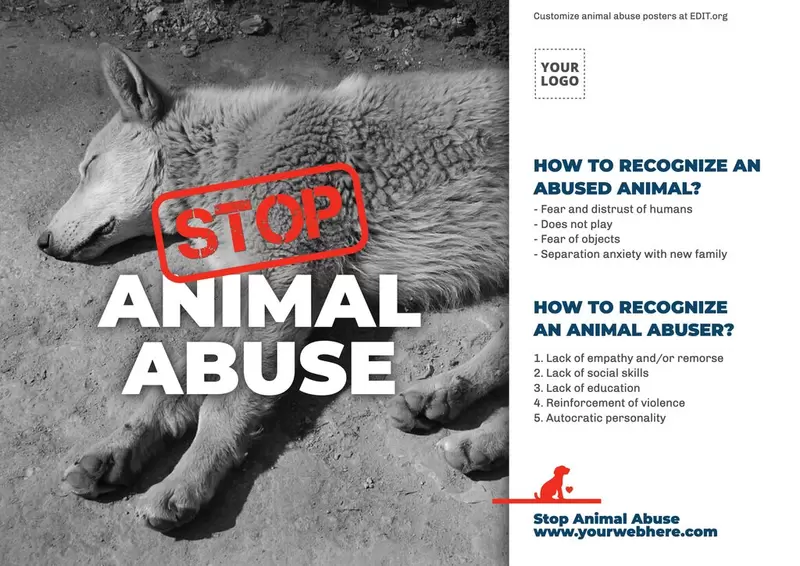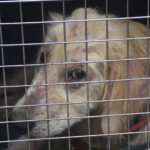Being falsely accused of animal abuse is akin to walking through a thick fog—disorienting and treacherous, with unseen dangers lurking just beyond visibility. Whether you are a pet owner, a rescue volunteer, or an animal rights advocate, a wrongful allegation can shatter your world and tarnish your reputation. Understanding the appropriate steps to take can help illuminate the path forward.
1. Remain Calm and Assess the Situation
Your initial response upon receiving an accusation should be calmness. Panic breeds uncertainty, and flustered reactions can escalate the situation. Take a step back to assess who is making the accusation and the context surrounding it. Is it a concerned neighbor? A social media post? A government entity? Each circumstance carries its weight and implications. Identify whether the allegation is based on a misunderstanding or if there are tangible concerns that must be addressed.
2. Document Everything
Like assembling pieces of a jigsaw puzzle, documenting every relevant detail is crucial. Keep a log of events, conversations, and any interactions related to the accusation. Photographic evidence, dates, times, and witness statements can serve as vital elements in constructing your defense. In this digital age, screenshots of any social media posts or communications can further validate your stance. The greater the compendium of documentation, the more solid your case becomes.
3. Understand the Law
Animal cruelty laws vary significantly across jurisdictions, both in terms of definitions and applicable penalties. Familiarizing yourself with local statutes can provide clarity regarding the specifics surrounding your case. Understanding these legal frameworks is fundamental; it empowers you to navigate this intricate landscape effectively. Consulting an attorney with expertise in animal law can also yield insights into how best to gauge your situation and develop a robust strategy.
4. Engage with Authorities Respectfully
When contacted by local animal control or law enforcement, approach the situation with a spirit of cooperation. Resistance or defensiveness may corroborate the accusatory narrative. Politely provide any requested information and remain transparent throughout the conversation. However, it is also vital to refrain from admitting guilt or making definitive statements without legal counsel present. Treat these interactions as an opportunity to clarify misunderstandings while ensuring your rights are preserved.
5. Collect Character References
Conceiving your reputation as a tapestry woven from various threads of relationships and experiences, presenting character references can help reinforce your credibility. Reach out to friends, family, or colleagues who can authenticate your commitment to humane animal treatment. Their testimony can serve as a counter-narrative to the accusations, illustrating a history of care and compassion toward animals that is incongruent with the claims being made against you.
6. Maintain Communication with Support Networks
In times of distress, leaning on support networks, whether they are friends, family, or animal rights organizations, can provide not only emotional sustenance but also practical advice. Being connected to those who understand the complexities of animal advocacy can help you build perspective. These networks can also assist in spreading the word, as clarifying misinformation is often a community effort. The more voices join together, the more potent the call for justice becomes.
7. Evaluate Social Media Implications
In today’s interconnected world, social media can amplify accusations, often spiraling them beyond a singular instance. Before posting your perspective, consider the repercussions. A defensive or retaliatory stance may invite further scrutiny or escalated hostility. Conversely, a measured response asserting your commitment to animal welfare may mitigate misunderstanding and assist in reframing the narrative. Strategically manage your online presence; an apparent emotional response can often be misinterpreted as guilt.
8. Explore the Path to Resolution
Once the dust begins to settle, explore your options for resolution. This may involve formal discussions, mediation, or even public advocacy to rectify the misunderstandings. Pursuing mediation can often serve as a means to engage in constructive dialogue, potentially alleviating tensions. Alternatively, public advocacy could be a way to transform a negative situation into a tepid conversation about animal welfare, showcasing your unwavering dedication to upholding animals’ rights.
9. Prepare for All Outcomes
In the realm of false accusations, adverse outcomes can loom unexpectedly. As you build your case, prepare for the possibility that the allegation may lead to investigations or court proceedings. Having a legal strategy prepared ensures you can defend yourself effectively against any charges, no matter how unwarranted they may be. Understanding the various legal ramifications can provide clarity on how to navigate through each possible scenario.
10. Rebuild Your Life After the Storm
Once the tides of the storm have calmed, the process of rebuilding begins. Seek ways to re-establish your reputation, possibly through community engagement or volunteering with reputable animal welfare organizations. Share your journey, the resilience you’ve shown, and the lessons gleaned from the experience. Through restorative actions, you may not only heal the scars left behind but also inspire others facing similar tribulations.
Falsely accused of animal abuse? While the fog may feel overwhelming, by meticulously navigating through comprehensive documentation, establishing legal insight, and cultivating support systems, you can traverse this perplexing quagmire. It is vital to not only assert your innocence but also reflect on the broader conversation surrounding animal welfare—turning a personal crisis into an opportunity for positive change within the community.








